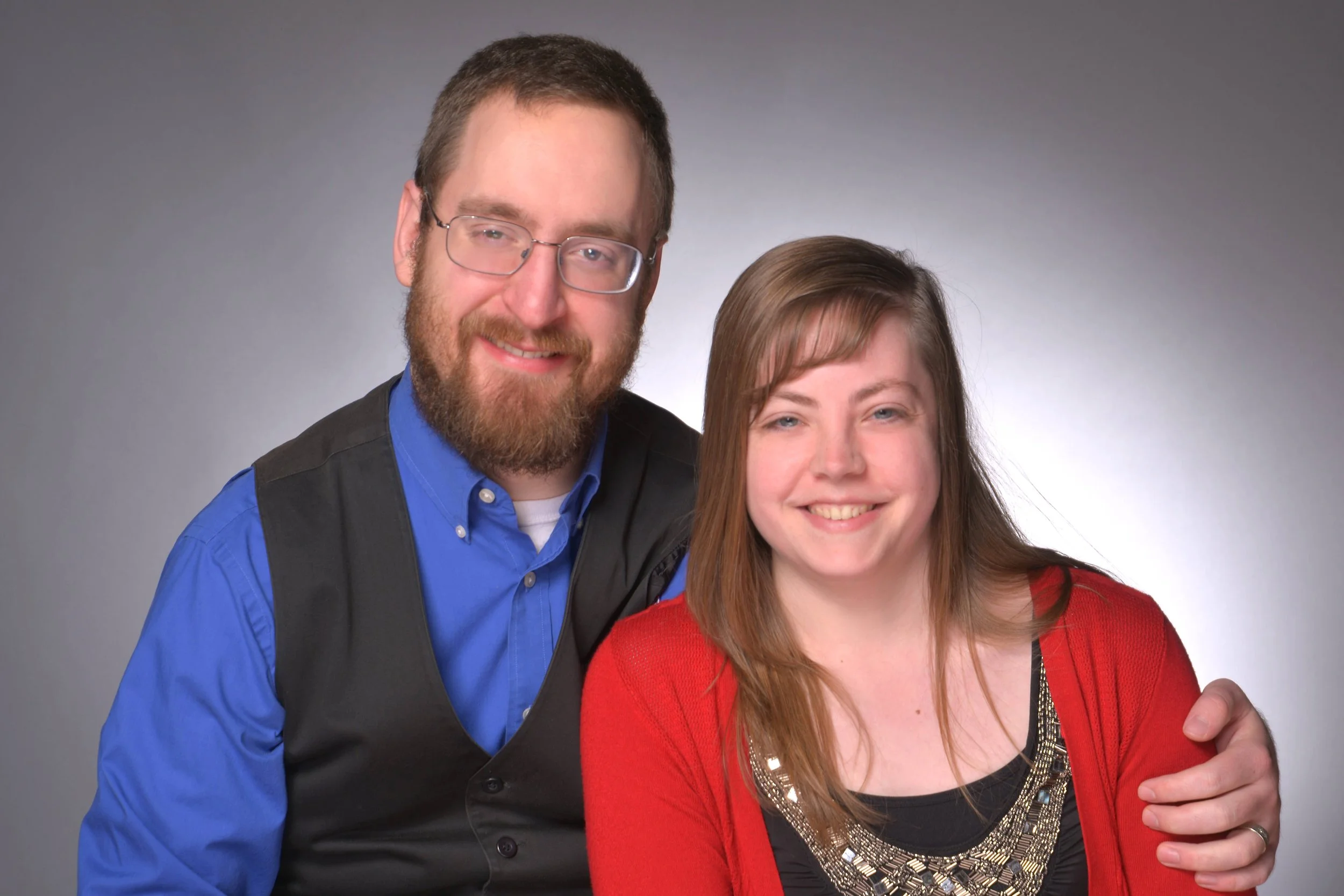Elders/Deacon Election
David Talcott
I moved to Moscow 2 1/2 years ago with my wife Anna to take up a position as a Fellow of Philosophy and Graduate Dean at New Saint Andrews College. We have been happily married for 23 years and have seven children, ages ranging from 22 down to 1 (Carver, Ellie, Laura, Rose, Hope, John, and Albert). The youngest four live with us in Moscow and the oldest three are out of the house or attending college in the midwest. I grew up in a Christian home in Southern California and have never known a time when I didn't believe in Jesus. As Martin Luther wrote, the whole life of a Christian is to be one of repentance, and I am continually thankful for God's grace in my life. My parents were first-generation Christians, converted during the end of the Jesus People movement. After growing up dispensationalist and fundamentalist I became Reformed in college and then eventually full Presbyterian (my wife is a cradle Presbyterian). Prior to moving to Moscow, I served as a Ruling Elder in our PCA church in New Jersey. My family and I have been greatly blessed by the community in Moscow and at King’s Cross church.
Matt Winckler
I was born into a Christian home, never having known a day apart from Christ my Savior. I first met my wife-to-be, Mystie, when we were about 13 years old and both our families were attending the same church in Kennewick, WA. We both came to Moscow in 2000 to study at University of Idaho, attending Christ Church at the time, and we were married in the summer of 2001 between our junior and senior years. Following graduation, we returned to eastern Washington, where we raised 5 kids in the Lord, I started a career as a software developer, and we served as part of the body of Grace URC. In early 2022 we moved back to Moscow and have since added a wonderful daughter-in-law and two grandchildren to the extended family. Our second son is now a senior at NSA, our daughter is a freshman, and we have just two left at our homeschool. I work locally as a software developer for Treefort Systems, and I spend my spare evenings and Saturdays building our future home. It's our delight to be part of the King's Cross body, I've been honored to serve as a parish elder for the past two years, and I hope to continue serving for many years to come.
James Goode
I was born in Texas, the first of what would be ten children born to a Southern Baptist Army chaplain and his loving wife. We moved all over the place as I grew up—favorites included Germany and the United States Military Academy—including theologically, as I watched my father discover the Reformed emphases of the faith around age ten. This meant I was the only member of my family to be baptized on profession of faith (aged seven) though I can truthfully say I've never doubted God's reality or direction of my life. Ten years ago, I wound up in Moscow for a second attempt at college at NSA. That attempt was successful (I paid for it by working night shift at Winco, which means I have a lot of fun stories, should you ask). After graduation, I managed to convince Pastor Sumpter's sister Molly to marry me and began teaching Humanities for Logos Online School; God has produced much fruit in me from both of these major endeavors over the last five-plus years! Molly and I are seeking an adoption and would appreciate your prayers. I also currently assist with freshman Rhetoric classes at NSA. The Goodes have been attending King's Cross since before it particularized, and we love our people here. I'm grateful to have the opportunity to serve you in a more formal capacity.
From our Constitution:
Electors
In church elections, voting is done by household. Those households eligible to vote will be called elector households. For voting purposes, an elector household is defined as a household where the head of that household is a member in good standing. Independant unmarried members are also considered elector households for purposes of voting. Elector households may vote in the elections of elders and deacons. The elders will qualify elector households. Three weeks prior to any church election, a ballot will be provided. Elections will be conducted at appropriate times set by the elders.
Election of Parish Elders
A prospect for parish elder may be identified by the elders, by the congregation, or may volunteer himself. The elders will discuss the prospects, examine them, and narrow the list down as appropriate. If the nominee has any disagreement or mental reservation about any portion of the church’s book of Confessions or this constitution, he must inform the elders of it. All prospects for elder must meet the qualifications for the office set down in Scripture (1 Tim. 3:1–7; Tit. 1:5–9; 1 Pet. 5:2–4; 1 Tim. 3:8–13).
Once approved, the nominee may work through a short course of training on eldership under the oversight of the current session. His name will then be placed on a ballot for the electors. Each ballot will provide the option of voting yes, no, or abstain.
If the candidate receives a two thirds majority support of the entire congregation, the elders will ordain him for a two year term through the laying on of hands and prayer. If any elector votes no and includes a reason for the no vote on the ballot, the elders must carefully weigh the scriptural merit of the objection before ordaining the elder elect.
At the end of a two year term, if he desires to continue serving the congregation, the parish elder must be reaffirmed by a two thirds majority vote of the entire congregation. If elected, the elders will extend his ordination for an additional five year term. If any elector votes no and includes a reason for the no vote on the ballot, the elders must carefully weigh the scriptural merit of the objection before ordaining the elder elect.
After the subsequent five year term, if the elder wishes to continue his service, another church wide election will occur. If in this election, the candidate receives a three quarters majority of the congregational votes cast, the elders will extend his ordination for life. If any elector votes no and includes a reason for the no vote on the ballot, the elders must carefully weigh the scriptural merit of the objection and meet as necessary with the electors who cast the no votes. If these conditions are met, the elders will extend the parish elder’s ordination to a life-term through laying on of hands and prayer. If events warrant it, during an elder’s term of office, the session may grant a leave of absence for a length of time specified at the time of the leave. If the leave of absence coincides with an elder election to renew or extend his term of service, his election may be postponed until the leave of absence is concluded.
Election of Deacons
Once nominated, a candidate for deacon will be included by the deacons in their work in order to prove his fitness for office (1 Tim. 3:10).
When in their judgment, the candidate has demonstrated this, the deacons will make a recommendation, after a four-fifths majority vote, to the elders to place his name on the ballot. If, in the judgment of the elders, the candidate receives the clear and obvious support of the church as represented, the elders will ordain him through laying on of hands and prayer (Acts 6:6).
When ordained, the elder or deacon will vow:
“As God is my witness, I solemnly vow that I will serve this church faithfully as a servant of Christ, and will maintain godly order in my life and my household as the Word of God requires.”
Once ordained, the deacon will serve an initial two-year term, at the end of that first term the diaconate should review his work, and then make a recommendation to the session regarding whether he should be put forward for a congregational election to a five-year term. This process should be repeated at the end of the five-year term, for election to a life term. At the end of either the two or five-year term, if either the deacon or the session determines he should not continue, there is no need to resign, his term as a church officer simply laspes/expires.




